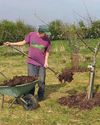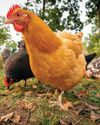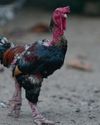
There is nothing better than hatching your own chicks. Using an incubator means you can choose when you want your eggs to hatch so that you can fit raising chicks into your life at a time to suit you.
Getting the best out of your incubator comes down to two factors:
- The incubator you choose to buy
- Monitoring the incubator
WHICH INCUBATOR SHOULD I CHOOSE?
There are 5 aspects to consider when buying an incubator:
• Brand quality
• Egg capacity
• Manual or Auto-turning:
• Temperature Regulation
• Humidity regulation
Brand Quality. Top Tip No1: Don't buy a cheap incubator.
When we first bought an incubator we fell into a common trap; we bought a cheap incubator from eBay. It was dreadful. Why was it so bad? It shouldn't have been as it was listed as having many things we wanted:
• Auto-turning to regularly turn the eggs
• Automatic heat regulation
• Humidity sensors and alarms if the humidity was out of range
Unfortunately, we found that none of these features worked to properly support the incubation process;
• The eggs were only turned by 90°. Too shallow to ensure that chick forming inside the egg does not adhere to the shell as it grows.
• The heat regulation only worked if the room temperature was between 20°c and 22°C.
• The humidity sensor only worked if we were able to programme the relative humidity of the room the incubator was in. We had no idea how to find that out!
Now we buy Brinsea Incubators and we own four of various types and sizes. They've never let us down, are UK made with the reassurance of being protected by an antimicrobial additive.
Egg Capacity. Top Tip No2: Choose an incubator capacity for the long-term
This story is from the Spring 2023 edition of The Country Smallholder.
Start your 7-day Magzter GOLD free trial to access thousands of curated premium stories, and 9,000+ magazines and newspapers.
Already a subscriber ? Sign In
This story is from the Spring 2023 edition of The Country Smallholder.
Start your 7-day Magzter GOLD free trial to access thousands of curated premium stories, and 9,000+ magazines and newspapers.
Already a subscriber? Sign In

How to Buy a Smallholding in France- Long-time smallholder Lorraine Turnbull looks at the practicalities of moving to rural France
Aspiring smallholders are continually thwarted by the prices of smallholdings and property with land located within the UK. Even the humblest croft in Scotland comes with a substantial price tag and conditions which would make even an adventurous wannabee consider carefully. But all is not lost. For those willing to take the adventure of a lifetime, there is always Europe, and one of the most popular places is France.

Meet the Bournemouth goats and their supporters
These capricious animals are hard workers preserving the natural habitat

Still warm enough to sit outside with a Pizza
Henrietta Balcon uses fresh figs to create an unusual dish at Harvest time

Goodbye to the birds of spring and summer
If you look and listen you might be able to see them preparing to leave says The RSPB

Get ready for the colder weather in the warmth of late summer
Claire Waring advises on doing the best to make sure your colonies survive until next spring

Preparing the Veg Patch for Winter
Lee Senior says, a well-run plot can excitingly continue to produce good quality, tasty, fresh food for much of winter

Time to prepare to plant your orchard
Wade Muggleton, smallholder and author of The Orchard Book, shares his practical experience so you can create your own fruit collection

Choosing feed for the autumn
As autumn approaches, Joanna Palmer, nutritionist at the Smallholder Range, offers advice on choosing the right feed to support your adult birds through their annual moult and ensure your young birds grow and finish well at this time of the year.

Vet advice from an experienced poultry vet
Reflecting on how much the humble hen has helped people world wide plus advice on stopping the scourge of red mite

Give your hens some support
Paul Donovan looks at the right and wrong ways of handling birds